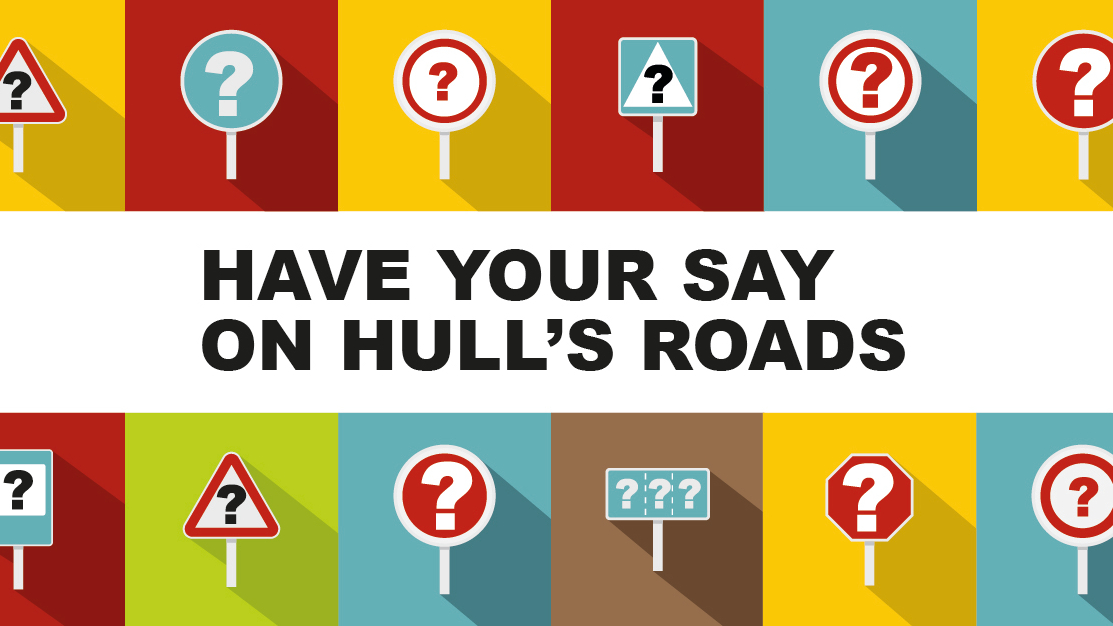Hull City Council has today released the findings of its citywide transport survey, which gave everyone the chance to have a say on the future of Hull’s roads.
The survey ran throughout August and September, with residents invited to give their responses online or by returning paper copies that were sent to every household in the city.
The response was one of the biggest the council has ever seen. A total of 22,068 surveys were completed, with 17,623 returned by post, 4,229 online, and 216 at engagement events.
The survey listed several aspects of Hull’s roads and asked whether people believed each had got worse, stayed the same, or got better over the past two years.
Typically, all four key transport groups (motorists, cyclists, public transport users and pedestrians) were more likely to say that all the things listed had got worse, rather than better.
Some other key findings from respondents to the survey were:
- Across all key transport groups, the significant majority said congestion and journey times had got worse over the past two years,
- More than 70% of residents said they felt consulted “poorly” or “very poorly” over recent changes to bus lanes and cycle lanes.
- Most people said a main cause of the problems was roadworks / road improvement works.
- When asked about Hull’s bus lanes, most people were of the view that the operating hours should return to peak times in one direction, rather remain all day in both directions.
- Nearly two thirds of respondents said they believed that the cycle lanes and the new bus lane operating times had contributed to increased congestion.
Councillor Mike Ross, Leader of Hull City Council, said: “We have listened to what the people of Hull have had to say, and there are some very clear messages. What people will want to know now is what we are going to do about it.
“So today, we want to let everyone know exactly what the council is doing to address some of the major concerns people have raised.
“Some of these things the council is already working on, some we will accelerate and some we will begin to explore in response to the public feedback.
“The view among people who responded to the survey seems to be that bus lanes should return to peak times in one direction. As a result, I have already instructed officers to prepare a report detailing options and implications for consideration by Cabinet at the earliest opportunity.
“We are also committed to making cycling safer by improving our off-road cycle network. Much of what the council did in the past was about quantity of on-road cycle lanes. Going forward our focus will be on quality rather than quantity, and about safe, properly segregated off-road cycle lanes as well as action to tackle congestion on our roads.
“The first thing we will do on this front is get out there and clean up the cycle tracks. Issues like cleanliness, and glass on the existing cycle tracks are clearly significant issues for a lot of cyclists and people who want to cycle more”
As well as reviewing the operating times of bus lanes, the council plans to:
- Create a new traffic model for the city, using software that can simulate the impact major plans, such as new housing developments, would have on traffic the traffic network.
- Accelerate existing plans to set up a traffic and travel team to monitor the transport networks from 6am to 10pm, seven days a week. Using mobility intelligence systems, the team will be able to quickly react to incidents on the highway and get information to transport users via media channels, sat nav updates and other real-time information systems, such as bus and other traffic apps.
- Explore schemes that encourage/incentivise car sharing to tackle congestion by reducing the amount of traffic on the road in a way that is convenient for road users.
- As part of the combined bus partnership, work to improve reliability and frequency; improve communications and awareness of bus travel; and simplify bus route maps to assist all users with cross-city travel.
- Continue to lobby central government for Bus Rapid Transit funding.
- Work with Transpennine Express to make Hull Paragon Interchange a more pleasant experience for public transport users, including enhanced information and security.
Cllr Ross said: “Many people feel they weren’t properly consulted in the past. This survey, along with our transport summits and other engagement events, demonstrates our commitment to making sure people feel they are being listened to. This is how we intend to carry on.
“However, the council can’t fix the transport problems alone.
“We will be working closely with our transport partners, as well as major employers and stakeholders across the city to make the city’s transport network work for everyone, as well as achieving our environmental aims.
“Over the next few years, and after the completion of National Highways’ huge A63 Castle Street project, we believe we can have a vastly improved transport network.”
The full results of the Hull Transport Survey 2022 are available at the Hull Data Observatory under “previous consultations and survey results.”
